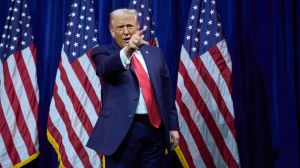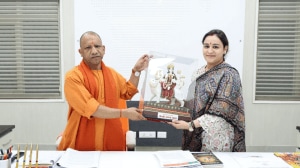Letters to the editor
Kickback culture8226; KUDOS to your correspondent, Ritu Sarin, for focusing on the culture of 8220;pay-offs8221; in arms deals IE, June ...

Kickback culture
8226; KUDOS to your correspondent, Ritu Sarin, for focusing on the culture of 8220;pay-offs8221; in arms deals IE, June 11. The CBI investigates defence pay-off cases, but these are checkmated by the government, using its prerogative to stymie investigations. India is one of the world8217;s leading arms importers, while our arms exports are minuscule. Numerous investigations into defence pay-offs languish under the overworked CBI8217;s scanner, tacitly awaiting political guidance. India8217;s dilatory legal procedure is another stumbling block. Indians need to appreciate that the gains in defence deals related to exports help a nation indirectly, while pay-offs in imports go into individual and party coffers.
The UK is currently embroiled in a major scandal for its large exports to Saudi Arabia, and Tony Blair has defended the pay-offs, which are now being investigated by the OECD as an unfair trade practice. Director Robert Wardle of the Serious Frauds Office has claimed that his office made the decision to withhold information from the OECD, which investigates international corruption and bribery, regarding the pound;1 billion bribes allegedly paid by arms giant BAe to Saudi Prince Bandar bin Sultan to facilitate the 45 billion Al Yamamah deal. The Indian Express has published names of the large defence operators and their foreign bank accounts, but nothing ever comes of it. One would be surprised if there are no pay- offs in the Scorpene and Barak deals under investigation. But it also needs to be said that these are crucial inductions for the navy and it must be ensured that even if some wrongdoing surfaces, such crucial armament deals must not be cancelled. Providence ensured that the 155mm Bofors deal of 1986 went through, despite all the political shenanigans. The Howitzer ensured that the Indian army was able to quickly repulse Pakistan8217;s Kargil intrusion in 1999.
8212; Cmde retd Ranjit B. Rai; Vice-President; Indian Maritime Foundation, New Delhi
China at table
8226; THIS refers to the news item, 8216;China gets colder on Arunachal border talks8217; IE, June 7. It was a historic blunder on the part of our political leaders who took over the reins of power in 1947 to step into the shoes discarded by the British imperialists while leaving India. They should have realised that China had never formally accepted the India-China boundary as arbitrarily fixed by the imperialists. After becoming independent, we should have sat down and discussed the issue in the spirit of good neighbourliness and entered into a fresh agreement on the international boundary. This is possible even now. Perhaps China is interested in keeping Aksai Chin and is claiming Arunachal Pradesh as a bargaining chip.
8212; Dalip Singh Ghuman, Chandigarh
- 01
- 02
- 03
- 04
- 05































